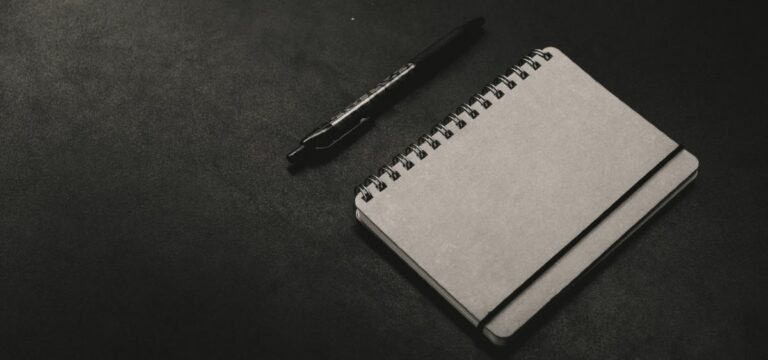Chris Callewaert is a passionate doctoral researcher at Ghent University who works on body odour. From all the media attention it seems that Chris is no less than on his way to conquering the world… I saw him make a very thought provoking TEDxTalk about his research that is changing lives. This is a transcript of an interview I had with him.
Chris, what is your research looking at?
 ‘The ultimate goal of my research is to improve the odour from the bacteria in your armpits, in clothing you wear and the washing machines you use. That is what you can call the mission statement of my research. My main activities include the characterisation and screening of bacteria associated with the measurement of odor production. We want to be able to understand the ‘bad’ bacteria, which give rise to an unpleasant door. We would like to have the ability to replace them, and add to them a large amount of ‘good’ bacteria.
‘The ultimate goal of my research is to improve the odour from the bacteria in your armpits, in clothing you wear and the washing machines you use. That is what you can call the mission statement of my research. My main activities include the characterisation and screening of bacteria associated with the measurement of odor production. We want to be able to understand the ‘bad’ bacteria, which give rise to an unpleasant door. We would like to have the ability to replace them, and add to them a large amount of ‘good’ bacteria.
My research has some really huge challenges. Smell is one of the most difficult human senses to replicate with a machine, if not the hardest. Smell is a subjective experience and can be different from person to person. Hence, we work with an ‘odour panel’, which consists of eight carefully selected and trained specialists. The bacterial community in the armpit has been investigated to a limited extent.
In addition, we went to link the smell with microbiology, which is a huge dose of bioinformatics. Fortunately, I have great colleagues to help with this.’
How does the scientific community react to a research subject like body odor?
‘Body odour is not seen as a disease, that is why there is hardly any research on it. If body odour would be categorized as a pathology, then there would undoubtedly have been more research to date.
Today, the focus is primarily on diseases with a major psychological impact, diseases which are life threatening. People with body odour issues are often stigmatized, bullied or are subtly informed that they do not smell so fresh. Nevertheless, many people do encounter the ill effects of their body odour.
Body odour conditions are anything but the kind of ‘luxury’ conditions where many people go through life without having any difficulties. This is at odds with the prevailing views about body odour.’
What does your research tackle now?
‘After a pilot study with three people, we have moved into the main study phase. Specifically, we will treat 20 people at this stage. Our research team really hopes that the treatment works and that the bad bacteria are expelled.
In addition, we indeed have attracted some media attention and have been in contact with many people who suffer from this condition and want to cooperate in our research, the so called ‘self declared smelly armpits’. By taking samples from them we can already gather a lot more additional information.’
What resources do you have at your disposal?
‘Without my research supervisors, professor Nico Boon and professor Tom Van de Wiele, I would not have been able to pursue my passion. They gave me the opportunity in the first place right after my studies to start with my research. When I missed out on a grant, they helped me obtaining a grant at the next opportunity.
A second example of valuable help is the help of specific people in the department of dermatology who have really played an important role. People like Mireille Van Gele and Jessica Bostoen have been key by giving their input on the research.
Additionally I would also like to express my thanks to professor emeritus Willy Verstraete, who founded our lab and stuck with many people with his passionate way of teaching. I consider him my scientific grandfather. His passion is contagious.’
What else helped?
‘Well, a friend of mine put me in touch with identical twins. I absolutely wanted to take a sample from both of them, as one of the twins had a body smell. I got the opportunity to perform a bacterial transplant from one armpit to the armpit of the other twin. The end result was that the twin with the body odour problem now has significantly less inconvenience with odour problems. With that first success I was able to really crack on and progress the research.’
Are there things you would have done differently?
‘Not really… If I could start over I would definitely work on this research topic again. Some research did not always give the desired results. But that is research. You cannot look back in time: it is inherent in the nature of research that you can rarely make clear and definite predictions.’
You get a considerable amount of media attention. How do you deal with that?
‘It’s true that I have had a lot airplay and appeared on television recently. The written press has interviewed me several times. The important thing for me as a researcher is that there is always a very positive reaction, although the first research results stem from 1 year ago. It is a bonus that many professors show an interest in this and find their way to this research. Until a month ago, I was pulling my hair out and asking myself where I was ever going to find 20 subjects for the research – but as the saying goes ‘the mountain came to speak to Moses’ and it was the other way round. That’s fantastic.’
Finally, is there a message that you want to convey to other researchers?
‘Follow your heart. Do what you enjoy. Find a research subject that really is 200% your thing. You will get the furthest if you are passionate about what you do.’
Chris and I end the interview and we each go our ways. The one driven by increasing beneficial changes to human systems, the other… well, the other too.



